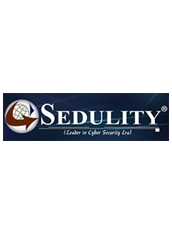Malpractice Policy
CTIJTM aims to be a main channel of data communication, sharing of ideas and information to the scientific researching community and also to the society at large. It is mandatory for us to follow certain code of ethics and it is advices to adhere strictly to the following code of ethics which will enhance the quality of the published works. This currently written code of ethics is focusing to provide guidance on the proper behavior of editors, reviewers and authors in the process of scientific publication by us.
Unethical behavior may be identified and brought to the attention of the editor and publisher at any time, by anyone. Whoever informs the editor or publisher of such conduct should provide sufficient information and evidence in order for an investigation to be initiated. All allegations should be taken seriously and treated in the same way, until a successful decision or conclusion is reached. Every reported act of unethical publishing behavior must be looked into, even if it is discovered years after publication.
The editor should take reasonably responsive measures when ethical complaints have been presented concerning a submitted manuscript or published paper, in conjunction with the publisher. Such measures will generally include contacting the author of the manuscript or paper and giving due consideration of the respective complaint or claims made, but may also include further communications to the relevant institutions and research bodies, depending on the misconduct seriousness.
Minor misconduct might be dealt with without the need to consult more widely. In any event, the author should be given the opportunity to respond to any allegations.
Serious misconduct might require application of one or more following measures:
-
Informing or educating the author or reviewer where there appears to be a misunderstanding or misapplication of acceptable standards.
-
Publication of a formal notice detailing the misconduct.
-
A formal letter to the head of the author’s or reviewer’s department or funding agency.
-
Formal retraction or withdrawal of a publication from the journal, in conjunction with informing the head of the author or reviewer’s department
-
Imposition of a formal embargo on contributions from an individual for a defined period.
Disclosure and Conflicts of Interest
Unpublished materials disclosed in a submitted manuscript must not be used in an editor’s own research without the express written consent of the author. Privileged information or ideas obtained through peer review must be kept confidential and not used for personal advantage. Editors should recuse themselves (i.e. should ask a co-editor, associate editor or other member of the editorial board instead to review and consider) from considering manuscripts in which they have conflicts of interest resulting from competitive, collaborative, or other relationships or connections with any of the authors, companies, or (possibly) institutions connected to the papers. Editors should require all contributors to disclose relevant competing interests and publish corrections if competing interests are revealed after publication.
Breach of Code
Being an association dedicated for the researcher fraternity, we all should ensure that the code of ethics formed is followed in all possible ways. Being a not-for-profit body it is the internal responsibility of a person whom should have to follow the codes, there is no enforcement to follow.
The Executive Managing Editor of journal or committee members are entitled to take action against an individual if they found to be violating the code.












